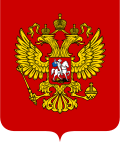Contents
- Russian SFSR
- Minister of Energy and Electrification
- Ministers of Fuel and Energy
- Russian Federation
- Ministers of Fuel and Energy 2
- Ministers of Energy
- Minister of Industry and Energy
- Ministers of Energy 2
- Timeline
- See also
- External links
This is a list of ministers of energy of Russia .













